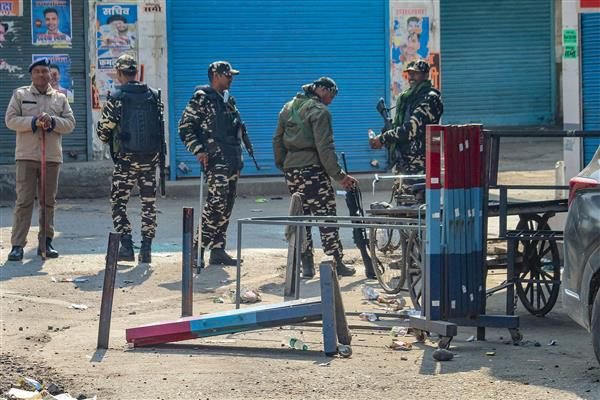The aftermath of the violence that rocked Haldwani on February 8th, following the demolition of an illegally built madrassa in the Banbhoolpura area, continues to unfold. Recent developments indicate that the police have initiated the confiscation of properties belonging to Abdul Malik and his son Abdul Moeed, who are alleged to be the masterminds behind the violence.
The Haldwani Civil Court has issued orders to confiscate the properties of nine individuals, including Abdul Malik and his son, under sections 82 and 83 of the Criminal Procedure Code (CrPC). Additionally, non-bailable warrants have been issued against all nine accused.
As part of the enforcement action, the police have removed the doors and door frames of Abdul Malik and Abdul Moeed’s house. However, both individuals, along with seven other accused, remain absconding. Abdul Malik, who reportedly constructed the madrassa and vehemently opposed its demolition, is believed to have orchestrated the clashes.
According to Uttarakhand Director General of Police Abhinav Kumar, 30 people have been arrested in connection with the violence in Haldwani so far. The clashes on February 8th resulted in the deaths of six individuals described as “rioters,” while over 100 people, including police personnel and media representatives, sustained injuries.
A fact-finding team led by civil rights groups has characterized the violent incidents in Haldwani as the culmination of escalating communal tensions fueled by divisive rhetoric and policies. The team’s report highlights the anguish within the Muslim community triggered by the demolition of the sealed mosque and madrasa, despite the matter being sub judice.
Criticism has been directed at the authorities for their handling of the situation, including the prolonged imposition of curfew and internet shutdown, which exacerbated the hardships faced by vulnerable residents, particularly women and children.
The developments underscore the complex socio-political dynamics at play in Haldwani and emphasize the need for careful and sensitive interventions to address communal tensions and promote peace and harmony in the region.
